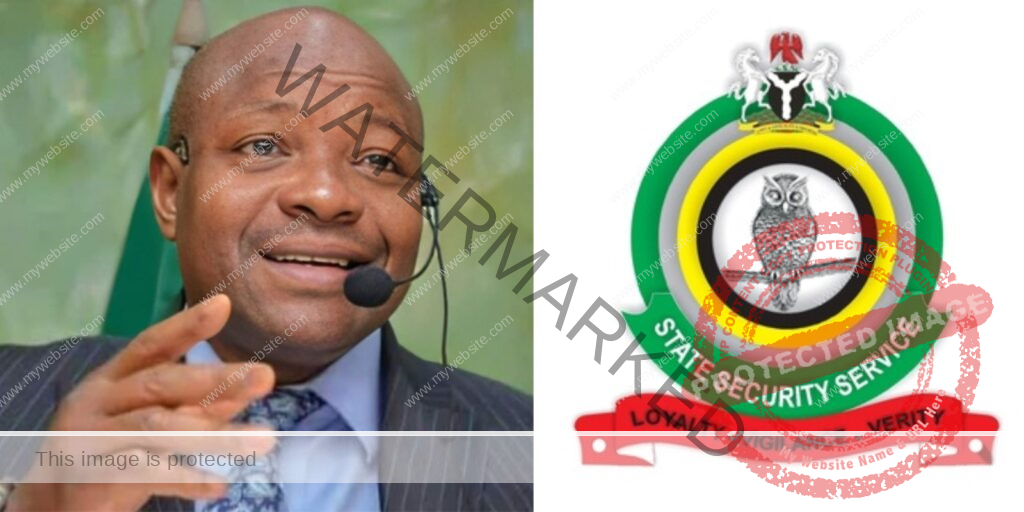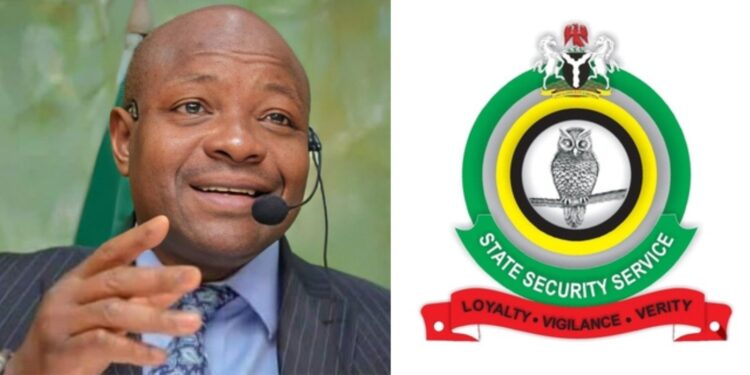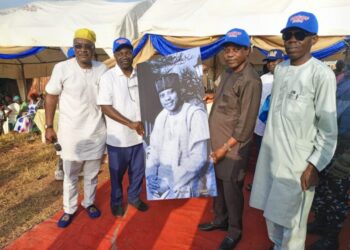


The Director-General of the Department of State Services (DSS), Mr. Adeola Oluwatosin Ajayi, has emphasized the need for Nigerians to take charge of their own security. According to Ajayi, the military, police, and intelligence agencies do not have the capacity to protect every community from terrorist attacks nationwide.

Ajayi made these remarks during a public engagement, which was broadcasted by Symfoni. He highlighted past incidents in Bauchi State, where local communities successfully fought off Boko Haram insurgents without waiting for security forces.

The DSS chief referenced the incident in Azare, where a group of Boko Haram terrorists invaded the community, shooting and attempting to kidnap people. However, the community fought back, killing the terrorists and preventing further attacks.
Ajayi also cited former dictator General Ibrahim Babangida (retd.) as endorsing the idea of community-led resistance. Babangida reportedly said, “If we want to stop or curb terrorism, we should emulate the Azare example.”

Tafawa Balewa Local Government in Bauchi State serves as another case study of community defence. According to Ajayi, the people there rose up against invaders, using their knowledge of the terrain to their advantage. They not only stopped the invaders but also seized their weapons, resulting in a significant reduction in attacks in the area.


Ajayi emphasized that the practical approach to mobilizing people against insecurity is to get everyone involved. He noted that it is impossible to deploy security forces everywhere, as no security agency has the resources to do so.
The DSS chief urged Nigerians to rethink their approach to self-defence, emphasizing that communities must serve as the “first line of defence” against terrorists and other criminals. He noted that the military, police, and other security agencies are there to handle bigger threats, but communities must take responsibility for defending themselves at the local level.
Ajayi also highlighted the importance of community involvement in security matters. He noted that Nigerians have a communal culture, where people come together for weddings, ceremonies, and other events. He questioned why Nigerians cannot come together to fight against miscreants and terrorists.
The DSS chief called on Nigerian elites and influential figures to encourage community-led defence models in their communities. He urged them to discuss the issue with their communities, seek guidance and approvals, and work together to stop criminals.
Ajayi’s comments have sparked a national conversation about the role of communities in security matters. Many Nigerians have taken to social media to express their support for community-led defence initiatives.
However, some experts have raised concerns about the potential risks of community-led defence models. They argue that such initiatives could lead to vigilantism and human rights abuses.
Despite these concerns, Ajayi’s comments have highlighted the need for Nigerians to take charge of their own security. As the country continues to grapple with insecurity, it is clear that community-led defence initiatives will play a critical role in addressing this challenge.
The Nigerian government has also been urged to provide support and resources to communities that are taking steps to defend themselves. This could include providing training and equipment to community defence groups, as well as establishing clear guidelines and regulations for community-led defence initiatives.
Ultimately, the success of community-led defence initiatives will depend on the ability of Nigerians to come together and take charge of their own security. As Ajayi noted, “Our culture is communal. We do things together. So why can’t we fight against some of the miscreants among us together?”














